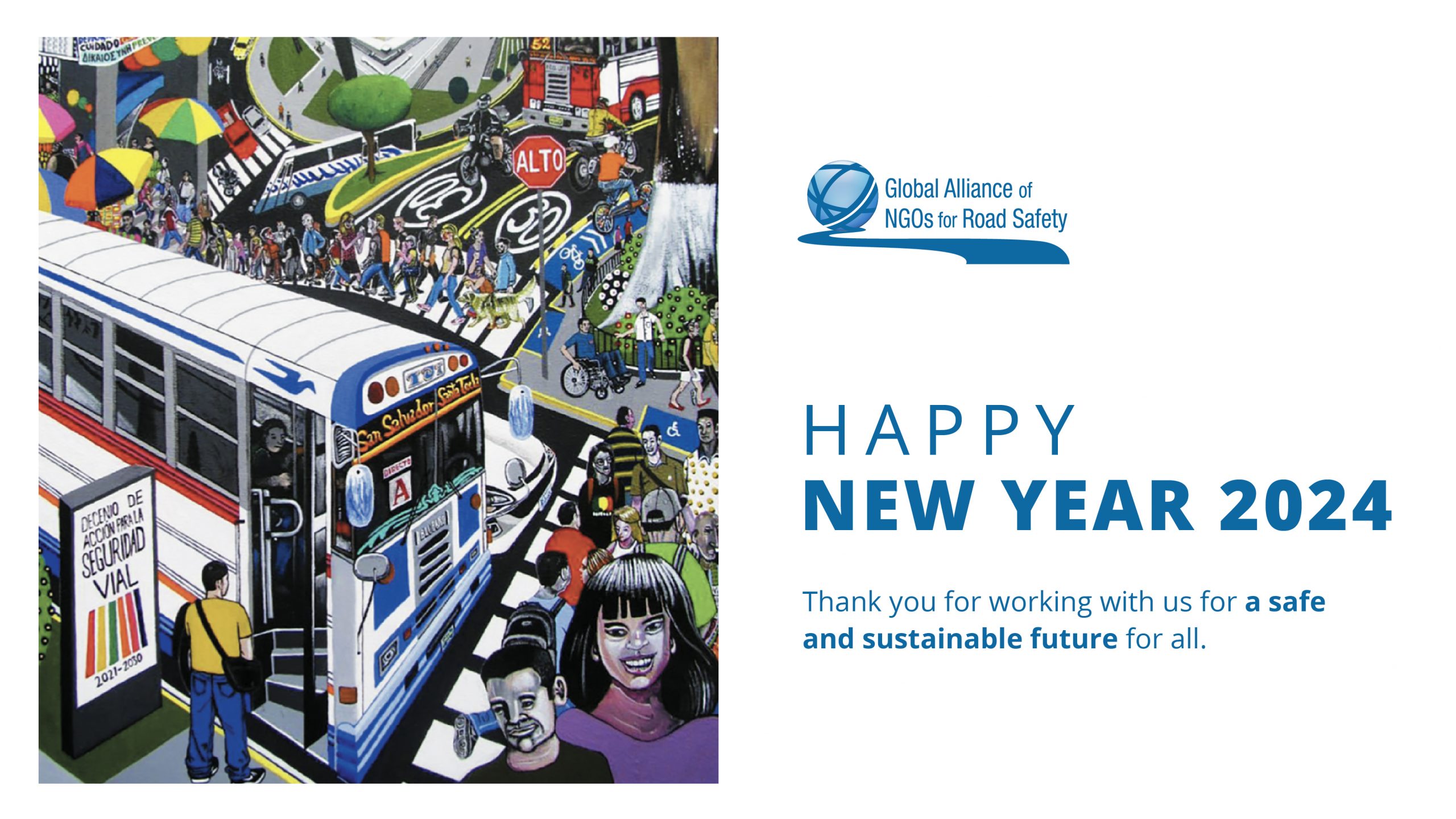
The year 2023 has been a remarkable year for the Alliance and its members. Members advocated on behalf of their communities to keep decision makers accountable for reducing road deaths supported by the Alliance through tools, campaigns, and other activities. Their advocacy led to various achievements such as a new law banning drink driving in Argentina, a decree in Tunisia for 30 km/h zones around schools, and incorporation of 30 km/h zones into the draft National Road Safety Plan in Tanzania. We also grew our member base to over 370 NGOs, adding over 42 new members in the past 12 months. We look back at some key highlights:
In March, the Eighth Global Meeting of Nongovernmental Organizations Advocating for Road Safety and Road Victims brought NGOs together to foster a stronger, aligned civil society global voice for advocacy. The theme of the meeting was Rethinking Road Safety for People and Planet. Three FedEx Road Safety Award winners were announced, and a painting was unveiled by local artist Gerardo Gómez that encapsulated members’ ideas about safe mobility.
The Accountability Toolkit was also launched, and contains a set of practical tools that empower NGOs to hold their governments accountable for the safety of all road users.
In May, NGOs reached over 166,000 people directly and over 42 million people indirectly, and engaged over 37 decision makers to #RethinkMobility through the UN Global Road Safety Week. NGOs urged policy makers to #RethinkMobility to facilitate safer walking, cycling, and public transport. The activities included campaigns for 30 km/h speed zones and lower limits; safe infrastructure for pedestrians and cyclists, and push for safe and reliable public transport.
In June, the Advocating for Emergency Care: a guide for nongovernmental organizations which was written collaboratively between the WHO, GACI, and the Alliance, was launched. The guide provides simple steps that can be followed by NGOs to identify effective interventions and to advocate for their implementation. The steps are backed up by practical case studies, including a number from Alliance members.
In August, the UN Secretary-General, António Guterres received the #RethinkMobility painting as a call to action for governments and international authorities to prioritize safe mobility and road safety on the global agenda. The painting was the focal point of an exhibition hosted at the UN Headquarters in New York for the 2023 World Day of Remembrance for Road Traffic Victims.
In September, the LEARN Guide to empower road safety advocates globally, was released in collaboration with the International Road Federation (IRF). The guide enables NGOs and other road safety stakeholders to set up their own LEARN coalitions, benefiting from the tools and learning experiences of existing ones. The LEARN (Learn, Examine, Act, Replicate, Network) program uses data-driven approaches to tackle specific road safety challenges and solutions.
In October, the second annual On Track or Off Target event for the anniversary of the Global Plan was held, during which a new initiative for pedestrian safety advocacy called Mobility Snapshots was unveiled. Mobility Snapshots is an advocacy tool for pedestrian safety and promoting accountability for the Decade of Action and SDGs 3.6 and 11.2.
In December, our Strategic Plan 2024 – 2030 to navigate the remaining years of the Decade of Action for Road Safety was launched. Through this strategic plan, we commit to empowering, mobilizing, and supporting our 370-plus member NGOs in more than 100 countries.
We thank our members, partners, and sponsors for their essential role in making it all happen. We are already looking forward to the journey ahead of us for the coming year. Read some of our plans for 2024 HERE.
We wish you a Happy New Year 2024.